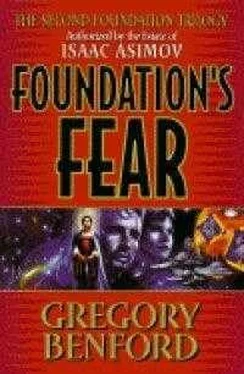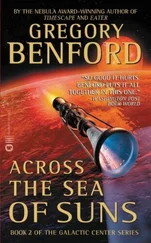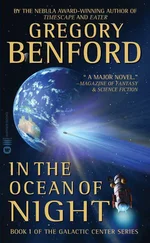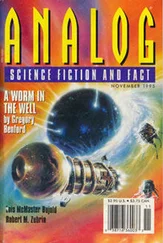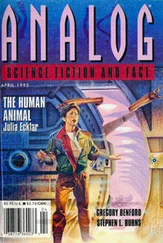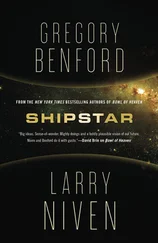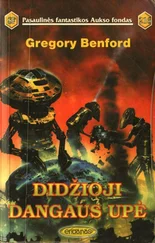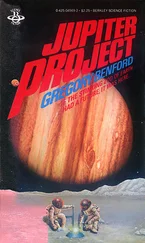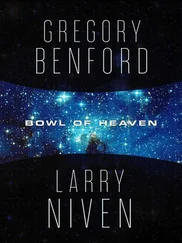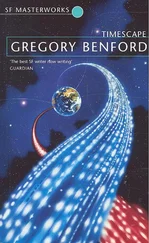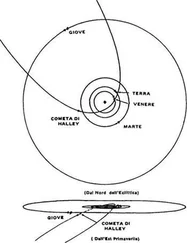Gregory Benford - Foundation’s Fear
Здесь есть возможность читать онлайн «Gregory Benford - Foundation’s Fear» весь текст электронной книги совершенно бесплатно (целиком полную версию без сокращений). В некоторых случаях можно слушать аудио, скачать через торрент в формате fb2 и присутствует краткое содержание. Год выпуска: 1997, ISBN: 1997, Издательство: Orbit, Жанр: Фантастика и фэнтези, на английском языке. Описание произведения, (предисловие) а так же отзывы посетителей доступны на портале библиотеки ЛибКат.
- Название:Foundation’s Fear
- Автор:
- Издательство:Orbit
- Жанр:
- Год:1997
- ISBN:ISBN: 0-06-105243-4
- Рейтинг книги:4 / 5. Голосов: 1
-
Избранное:Добавить в избранное
- Отзывы:
-
Ваша оценка:
- 80
- 1
- 2
- 3
- 4
- 5
Foundation’s Fear: краткое содержание, описание и аннотация
Предлагаем к чтению аннотацию, описание, краткое содержание или предисловие (зависит от того, что написал сам автор книги «Foundation’s Fear»). Если вы не нашли необходимую информацию о книге — напишите в комментариях, мы постараемся отыскать её.
Foundation’s Fear — читать онлайн бесплатно полную книгу (весь текст) целиком
Ниже представлен текст книги, разбитый по страницам. Система сохранения места последней прочитанной страницы, позволяет с удобством читать онлайн бесплатно книгу «Foundation’s Fear», без необходимости каждый раз заново искать на чём Вы остановились. Поставьте закладку, и сможете в любой момент перейти на страницу, на которой закончили чтение.
Интервал:
Закладка:
Surely we should notice that a novel Hemingway thought the best in American literature is a sequel-indeed, following on a boy’s book, Tom Sawyer.
Sharing common ground isn’t only a literary tradition. Are we thrown into moral confusion when we hear Rhapsody on a Theme by Paganini? Do we indignantly march from the concert hall when assaulted by Variations on a Theme by Haydn? Sharecropping by the Greats? Shocking!
Reinspecting the assumptions and methods of classical works can yield new fruit. Fresh narrative can both strike out into new territory while reflecting on the landscape of the past. Recall that Hamlet drew from several earlier plays about the same plot.
Isaac himself revisited the Foundation, taking different angles of attack each time. In the beginning, psychohistory equated the movements of people as a whole with the motions of molecules. The Second Foundation looked at perturbations to such deterministic laws (the Mule) and implied that only a superhuman elite could manage instabilities. Later, robots emerged as the elite, better than humans at dispassionate government. Beyond robots came Gaia…and so on.
In this three-book series we shall reinspect the role of robots, and what psychohistory might look like as a theory. More riffs upon the basic tune.
I had always wondered about crucial aspects of Asimov’s Empire:
Why were there no aliens in the galaxy? What role did computers play? Particularly, vs. robots?
What did the theory of psychohistory actually look like?
Finally, who was Hari Seldon-as a character, a man?
This novel attempts some answers. It is my contribution to a discussion about power and determinism which has now spanned over half a century.
Of course, we know some incidental answers. The term “psychohistory” was commonly used in the thirties and appears in the 1934 Webster’s Dictionary; Isaac greatly extended its meaning, though. He didn’t want to deal with John w. Campbell’s notorious dislike of aliens who might be as clever as we, so his Foundation had none. But it seemed to me there might be more to the matter.
As well, Asimov’s uniting of his robot novels and the Foundation series became intricate and puzzling. The British critic Brian Stableford found this “comforting in its claustrophobic enclosure.” There are no robots in the early Foundation novels, but they are behind-the-scenes manipulators in both Prelude to Foundation and Forward the Foundation.
Some form of advanced computing machines must underlie the Empire, surely. Isaac remarked that “I just put very advanced computers in the new Foundation novel and hoped that nobody would notice the inconsistency. Nobody did.”As James Gunn remarked, “More accurately, people noticed but didn’t care.”
Asimov wrote each novel at the level of the then current scientific understanding. Later works updated the surrounding science. Thus his galaxy is more detailed in later books, including in Foundation’s Edge both advanced computers and a black hole at the Galactic Center. Similarly, here I have depicted our more detailed knowledge of the Galactic Center. In place of Isaac’s “hyperspace” ships I have used wormholes, which have considerably more theoretical justification now than they did when Einstein and Rosen introduced them in the 1930s. Indeed, wormholes are allowed by the general theory of relativity, but must have extreme forms of matter to form and support them. (Matt Visser’s Lorentzian Wormholes is the standard work on current thinking.)
Isaac wrote much of his fiction in a style he termed “direct and spare,” though in the later works he relaxed this constraint a bit. I have not attempted to write in the Asimov style. (Those who think it is easy to write clearly about complex subjects should try it.) For the Foundation novels he used a particularly bare-boards approach, with virtually no background descriptions or novelistic details.
Note his own reaction when he decided to return to the series and revisited the trilogy:
“I read it with mounting uneasiness. I kept waiting for something to happen, and nothing ever did. All three volumes, all the nearly quarter of a million words, consisted of thoughts and conversation. No action. No physical suspense.”
But it worked, famously so. I could not manage such an approach, so have taken my own way.
I found that the details of Trantor, of psychohistory and the Empire, called out to me as I began thinking about this novel-indeed, they led me on my subconscious quest of the underlying story. So the book is not an imitation Asimov novel but a Benford novel using Asimov’s basic ideas and backdrop.
Necessarily my approach has harkened back to the older storytelling styles which prevailed in the SF of Isaac’s days. I have never responded favorably to the recent razoring of literature by critics-the tribes of structuralists, post-modernists, deconstructionists. To many SF writers, “post-modern” is simply a signature of exhaustion. Its typical apparatus-self-reference, heavy dollops of obligatory irony, self-conscious use of older genre devices, pastiche, and parody betrays lack of invention, of the crucial coin of SF, imagination. Some deconstructionists have attacked science itself as mere rhetoric, not an ordering of nature, seeking to reduce it to the status of the ultimately arbitrary humanities. Most SF types find this attack on empiricism a worn old song with new lyrics, quite quaintly retro.
At the core of SF lies the experience of science. This makes the genre finally hostile to such fashions in criticism, for it values its empirical ground. Deconstructionism’s stress on contradictory or selfcontained internal differences in texts, rather than their link to reality, often merely leads to literature seen as empty word games.
SF novels give us worlds which are not to be taken as metaphors but as real. We are asked to participate in wrenchingly strange events, not merely watch them for clues to what they’re really talking about. (Ummm, if this stands for that, then the other stuff must stand for… .Not a way to gather narrative momentum.) The Mars and stars and digital deserts of our best novels are, finally, to be taken as real, as if to say: Life isn’t like this, it is this. Journeys can go to fresh places, not merely return us to ourselves.
Even so, I’ve indulged myself a bit in the satirical scenes depicting an academia going off the rails, but I feel Isaac would have approved of my targets. Readers thinking I’ve gone overboard in depicting the view that science does not deal with objective truths, but instead is a battleground of power politics where “naIve realism” meets relativist worldviews, should look into The Golem by Harry Collins and Trevor Pinch. This book attempts to portray scientists as no more the holders of objective knowledge than are lawyers or travel agents.
The recent “re-norming” of the Scholastic Aptitude Tests so that each year the average is forced to the same number, thus masking the decline of ability in students, I satirize in the very last pages of the novel; I hope Isaac would have gotten a chuckle from seeing the issue framed against an entire galaxy.
From Verne and Wells to somewhere near 1970, science fiction was mostly about the wonders of movement, of transportation. Note the innumerable novels with the word star in their titles, evoking far destinations, and stories such as Robert Heinlein’s “The Roads Must Roll.”
But in the past few decades we have focused more on the wonders of information, of transformations at least partly internal, not external. The Internet, virtual reality, computer simulations-all these loom large in our visions of our futures. This novel attempts to combine these two themes, with several conspicuous scenes about travel, and a larger background motif on computers.
Читать дальшеИнтервал:
Закладка:
Похожие книги на «Foundation’s Fear»
Представляем Вашему вниманию похожие книги на «Foundation’s Fear» списком для выбора. Мы отобрали схожую по названию и смыслу литературу в надежде предоставить читателям больше вариантов отыскать новые, интересные, ещё непрочитанные произведения.
Обсуждение, отзывы о книге «Foundation’s Fear» и просто собственные мнения читателей. Оставьте ваши комментарии, напишите, что Вы думаете о произведении, его смысле или главных героях. Укажите что конкретно понравилось, а что нет, и почему Вы так считаете.
